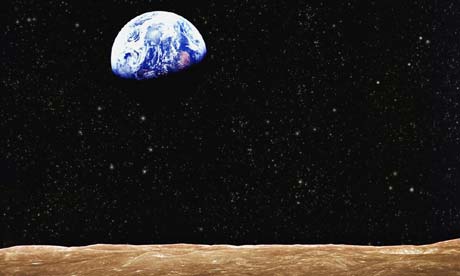 Environmental Failures 'Put Humanity At Risk'UN report bemoans lack of urgency by governments - 5 year study involved more than 1,400 scientistsMartin Hodgson The Guardian October 26 2007 Each person requires a third more land for his or her needs than the planet can supply, says the study. The future of humanity has been put at risk by a failure to address environmental problems including climate change, species extinction and a growing human population, according to a new UN report.
In a sweeping audit of the world's environmental wellbeing, the study by the UN Environment Programme (UNEP) warns that governments are still failing to recognise the seriousness of major environmental issues. The study, involving more than 1,400 scientists, found that human consumption had far outstripped available resources. Each person on Earth now requires a third more land to supply his or her needs than the planet can supply, it finds. Meanwhile, biodiversity is seriously threatened by the impact of human activities: 30% of amphibians, 23% of mammals and 12% of birds are under threat of extinction, while one in 10 of the world's large rivers runs dry every year before it reaches the sea. The report - entitled “Global Environment Outlook: Environment for Development” - reviews progress made since a similar study in 1987 which laid the groundwork for studying environmental issues affecting the planet. Since the 1987 study, “Our Common Future,” the global response "has in some cases been courageous and inspiring," said the environment programme's executive director Achim Steiner. The international community has cut ozone-damaging chemicals, negotiated the Kyoto protocol and other international environmental treaties and supported a rise in protected areas which cover 12% of the world. "But all too often [the response] has been slow and at a pace and scale that fails to respond to or recognise the magnitude of the challenges facing the people and the environment of the planet," Mr Steiner said. "The systematic destruction of the Earth's natural and nature-based resources has reached a point where the economic viability of economies is being challenged - and where the bill we hand to our children may prove impossible to pay," he said. Climate change is a global priority that demands political leadership, but there has been "a remarkable lack of urgency" in the response, which the report characterised as "woefully inadequate". The report's authors say its objective is "not to present a dark and gloomy scenario, but an urgent call to action". It warns that tackling the problems may affect the vested interests of powerful groups, and that the environment must be moved to the core of decision-making. The report said irreversible damage to the world's climate will be likely unless greenhouse gas emissions drop to below 50% of their 1990 levels before 2050. To reach this level, the richer countries must cut emissions by 60% to 80% by 2050 and developing countries must also make significant reductions, it says. It addresses a number of areas where environmental degradation is threatening human welfare and the planet, including water, over-fishing and biodiversity - where the UNEP says a sixth, human-induced, extinction is under way. Billions of people in the developing world are put at risk by a failure to remedy relatively simple problems such as waterborne disease, the study says. The 550-page report took five years to prepare. It was researched and drafted by almost 400 scientists, whose findings were peer-reviewed by 1,000 others. One of the report's authors, Joseph Alcamo said that race is on to determine if leaders move fast enough to save the planet. "The question for me, for us perhaps, is whether we're going to make it to a more slowly changing world or whether we're going to hit a brick wall in the Earth's system first," he said. "Personally, I think this could be one of the most important races that humanity will ever run." In numbers:
Source: Global Environment Output 2007 |
Email this page to a friend
If you speak another language fluently and you liked this page, make
a contribution by translating
it! For additional translations check out FreeTranslation.com
(Voor vertaling van Engels tot Nederlands)
(For oversettelse fra Engelsk til Norsk)
(Для дополнительных
переводов проверяют
FreeTranslation.com )


